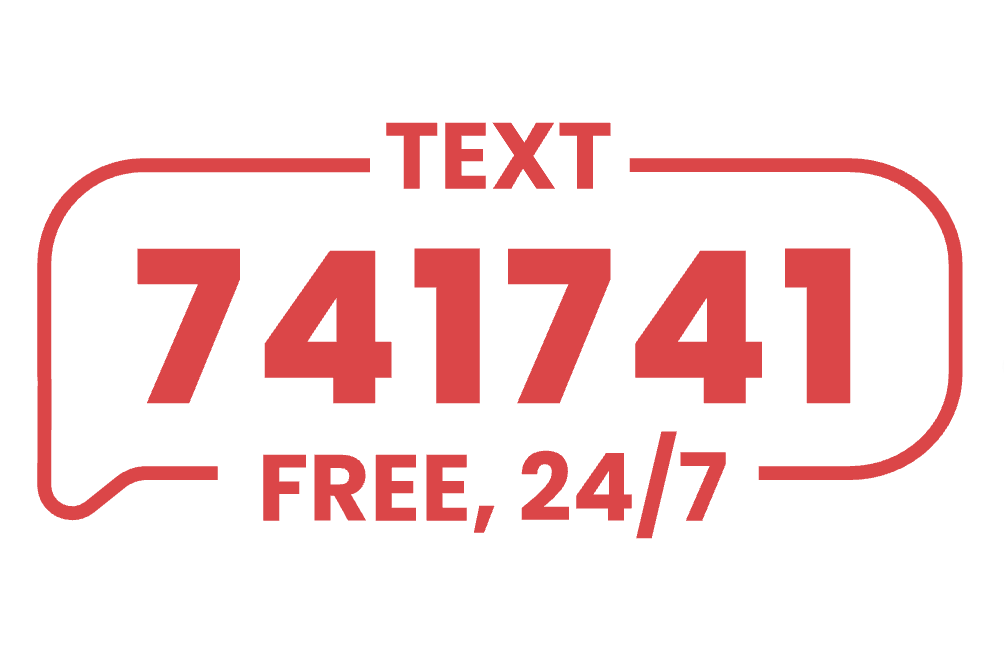Mental Health Disparities and Supporting Black, Indigenous, and People of Color (BIPOC) Communities

July is BIPOC Mental Health Month—a time dedicated to recognizing the unique mental health challenges faced by Black, Indigenous, and People of Color. Also known as Minority Mental Health Awareness Month or Bebe Moore Campbell National Minority Mental Health Awareness Month, this observance honors the work of author and advocate Bebe Moore Campbell, who was a powerful voice for mental health awareness, especially in Black communities. This month is an opportunity to uplift the importance of culturally-responsive care in mental health services, and amplify the needs of communities that have been marginalized in conversations around mental health.
Exploring the Mental Health Crisis in the U.S.
Through the de-identified data and insights that Crisis Text Line has aggregated from our millions of conversations, along with publicly available data, below are some of the broader findings around mental health crisis within the United States.
Related to the conversation-specific data Crisis Text Line has compiled and published on our new public resource portal, crisistrends.org:
- Relationships were the #1 issue – In 2024, almost 33% of conversations were related to relationships. This category includes stressors and conflicts with various types of relationships including familial, partnerships, friendships, etc.
- Bullying continues to rise – Bullying has been steadily increasing since schools reopened post-COVID. In 2021, 2.3% of conversations were related to bullying and has risen each year since, to now 3.9% in 2024.
- Suicide remains one of the most critical mental health issues – Suicide and/or suicidal ideation was discussed in 21% of conversations in 2024, which is an increase compared to 2023 at 17.9%.
Additional statistics speaking to the mental health crisis in the U.S. include:
- According to the National Alliance on Mental Illneness, suicide is the 2nd leading cause of death among people aged 10-14, the 3rd leading cause of death among those aged 15-24, and 12th leading cause of death overall.
- The Center for Disease Control (CDC) reports that in 2023, 13% or 1 in 8 adults regularly reported feelings of anxiety, and 5% or 1 in 20 adults regularly reported feelings of depression.
- In a 2022 survey conducted by the Pew Research Center, 53% of teens said that online harassment and online bullying are a major problem for people their age (13-17). Further, 46% said they have experienced at least one form of cyberbullying.
These trends are reflective of what we see amongst the populations Crisis Text Line has served since 2013. As the data suggests, mental health and well-being are major issues in the U.S. in general– but what does that mean specifically for the BIPOC community?
BIPOC Mental Health Statistics
The American Psychiatric Association provides a series of fact sheets that highlight statistics around BIPOC mental health disparities. Among these insights:
- Although rates of depression are lower in Black (24.6%) and Hispanic (19.6%) communities than in Whites communities (34.7%), depression in Black and Hispanic communities is likely to be more persistent. (Source: Mental Health Disparities: Diverse Populations)
- Only one-in-three African Americans who need mental health care receive it. (Source: Mental Health Disparities: African Americans)
- American Indians/Alaskan Natives report higher rates of posttraumatic stress disorder and alcohol dependence than any other ethnic/racial group. (Source: Mental Health Disparities: Diverse Populations)
Additional BIPOC mental health statistics:
- Black young adults aged 18-25 have the highest prevalence of any mental health condition compared to other races and ethnicities. (Source: African American mental health: Quick Facts)
- Substance misuse is more frequent among Latino and Hispanic adults with mental health conditions than their white counterparts. (Source: Latino and Hispanic mental health: Quick Facts)
- 8.5% of Indigenous adults had serious thoughts of suicide within the past year, compared to 4.8% of the overall U.S. population. (Source: Indigenous American mental health: Quick Facts)
How Crisis Text Line Supports BIPOC Mental Health
Crisis Text Line aims to remove access barriers to mental health support through our free, 24/7, and confidential service. Additionally, we partner with several BIPOC-based organizations to amplify additional resources to our texters including:
- Que Paso Latinx
- Black Men’s Health
- GirlTREK
- Black Girls Smile
- She Soars
- Urban Indigenous Collective
- Indigenous Circle of Wellness
- Asian Mental Health Project
Within our volunteer Crisis Counselor community– representation, cultural awareness, and accountability matter when supporting our texters! If you are interested in helping us improve mental health statistics for the BIPOC community, check out our volunteer page to learn more about becoming a volunteer Crisis Counselor.
Addressing disparities in BIPOC mental health is critical, and Crisis Text Line is here as a resource and support. If you or someone you know is in need of someone to talk to, text CONNECT to 741741 anytime for free, confidential help from one of our volunteer Crisis Counselors.

